The China Today Salon in Madrid was held at the China-Spain Talent Forum in Madrid, Spain on September 24. More than 40 representatives from the government, media, think tanks, and academia from China and Spain attended the forum, including Zhao Lijun, director of the Center for Europe and Africa of China International Communications Group (CICG), Zhang Ruobing, director of Beijing Talent Work Bureau, Antonio Miguel Carmona, president of Spain’s Friends of China Association, Javier Nart, member of the European Parliament, and Álvaro Costas, general secretary of the Social Council of the University of Madrid.
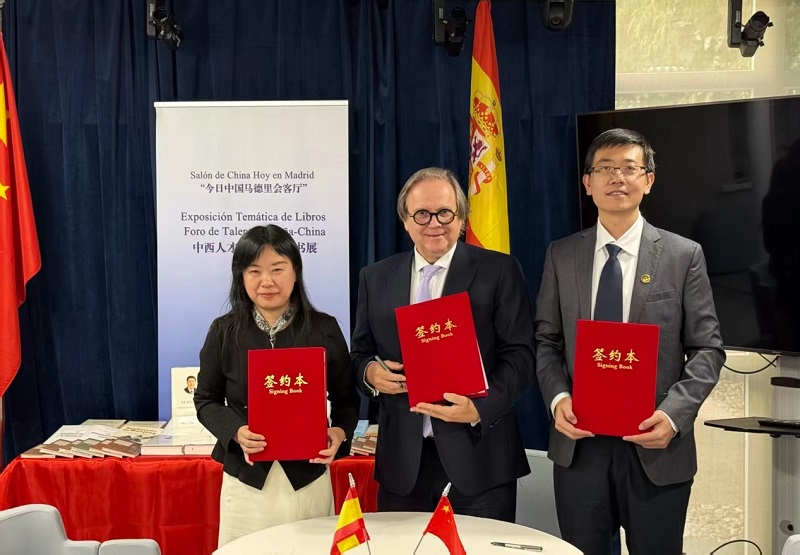
The signing ceremony of the three-party Strategic Cooperation Agreement for the Joint Construction of Beijing-Madrid Talent Liaison Station.
The CICG Center for Europe and Africa (China Today), Spain’s Friends of China Association, and the Beijing Institute of Talent Development Strategy signed a three-party Strategic Cooperation Agreement for the Joint Construction of Beijing-Madrid Talent Liaison Station, aiming to jointly establish an international hub for talent exchange and cooperation. It focuses on promoting the construction of collaborative networks between China and Europe in cutting-edge technology, thereby providing strong support for long-term and stable talent cooperation between the two sides.
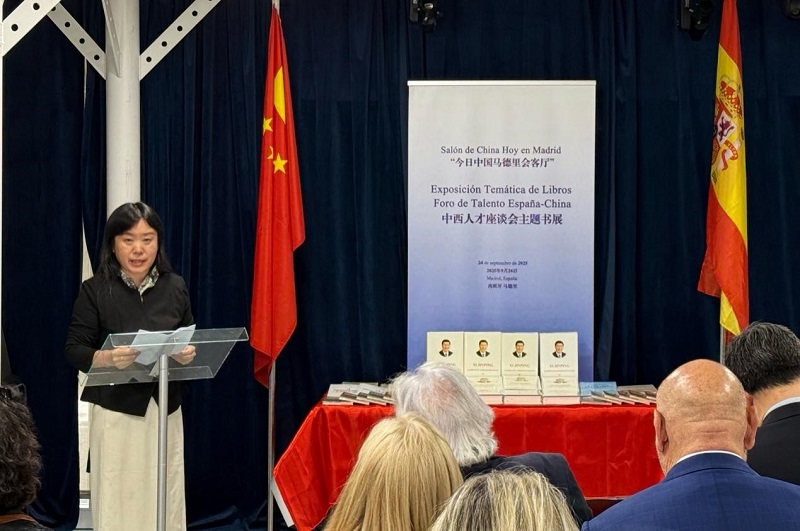
Zhao Lijun.
According to Zhao Lijun, enhancing talent exchange and cooperation between China and Spain is an important aspect of promoting mutual understanding between the two civilizations. Through the Beijing-Madrid Talent Liaison Station, universities, enterprises, and cultural institutions in China and Spain are connected. And through the China Today Salon in Madrid, the exchange and cooperation between China and Spain in the fields of science and technology, culture, and youth affairs are further advanced.
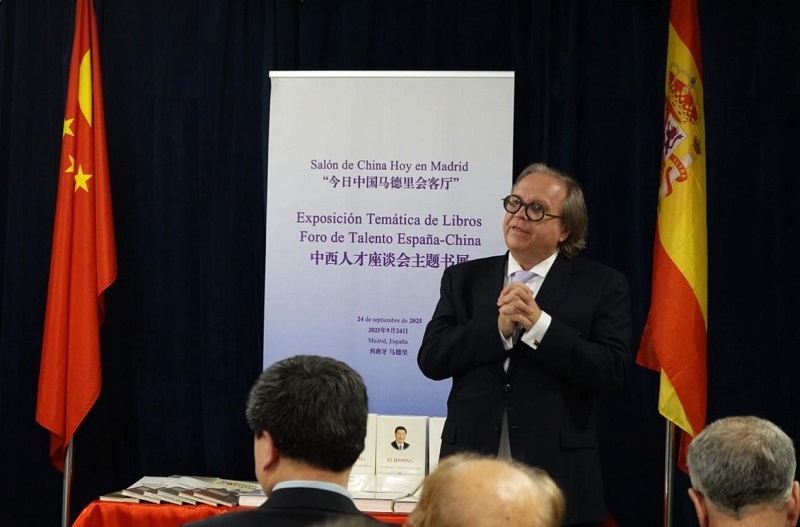
Antonio Miguel Carmona.
According to Antonio Miguel Carmona, talents are the cornerstone of a country's development and are closely linked to its present and future. As a country with a long history, Spain has always placed great importance on education. In this respect, the visions of China and Spain are highly aligned. The salon has established an excellent platform, bringing together talents from various fields, building bridges for cooperation, and exploring new avenues for collaboration.
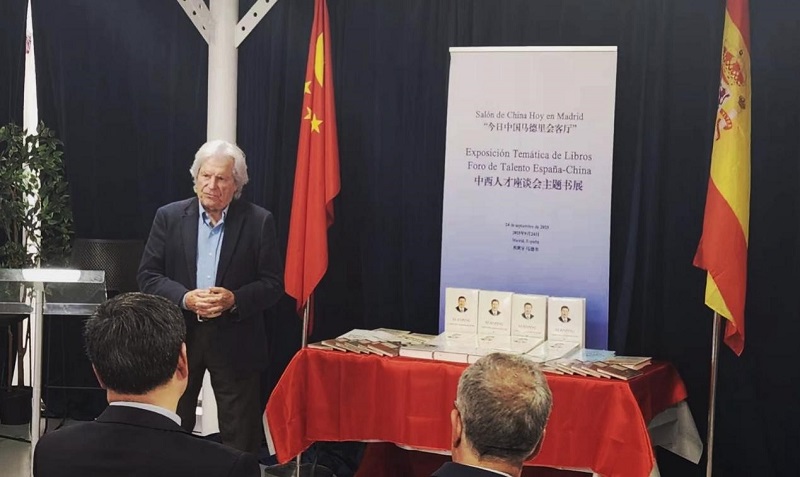
Javier Nart.
Javier Nart stressed the strategic significance of a nation's soft power. According to him, China's proposed initiatives, including the Belt and Road Initiative, the Global Development Initiative, the Global Security Initiative, the Global Civilization Initiative, and the Global Governance Initiative are of great significance. China and Europe need to deepen their understanding of each other's cultures based on respect for differences, as respect is more important than agreement. Additionally, the exchange and cooperation of talents across various fields between China and Europe will further promote mutual understanding and recognition among different cultures.
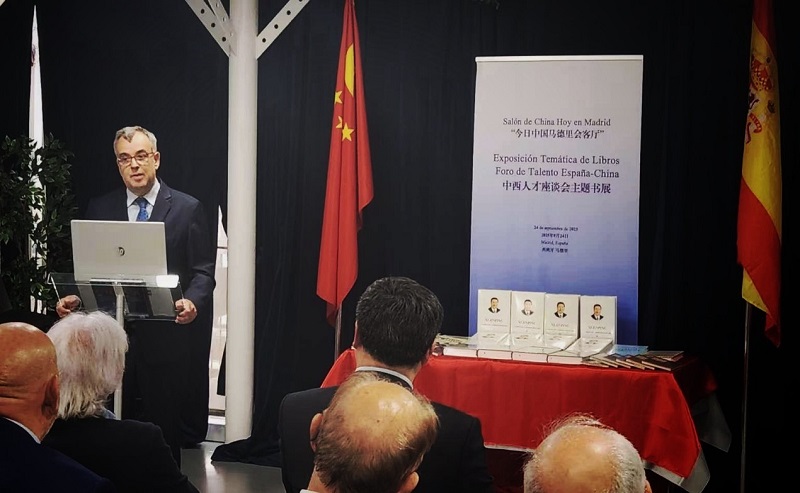
Álvaro Costas.
According to Álvaro Costas, the University of Madrid has established collaboration in Spanish language teaching and research with 37 Chinese universities and has signed 31 inter-university agreements. The newly established China-Spain collaborative research center will focus on cooperative research in fields such as history, philosophy, economics, arts, and sports. At present, the university has over 1,000 Chinese students enrolled. It is hoped that bilateral academic exchanges between China and Spain will be further expanded.
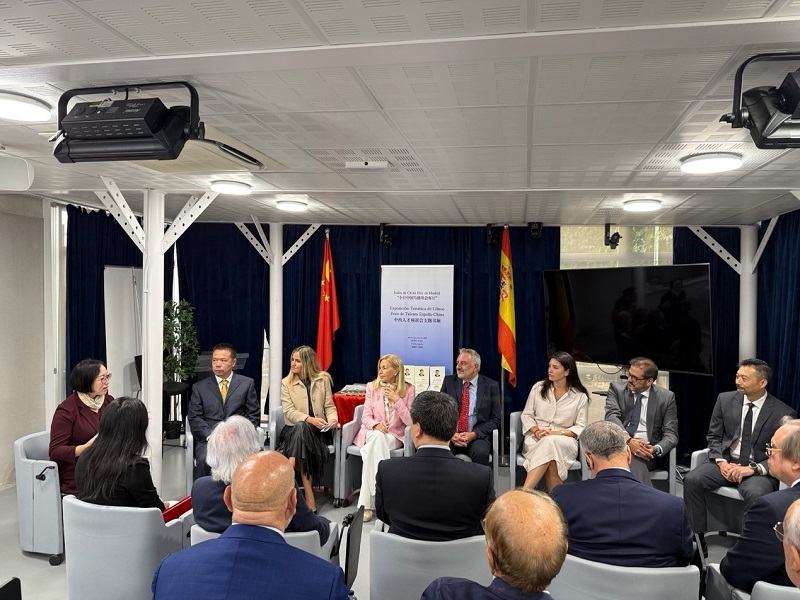
The discussion session.
During the discussion session, the exchange and collaboration of talent in the field of artificial intelligence (AI) became a focus of attention. According to Professor Covadonga Torres at the Universidad Rey Juan Carlos, since AI has become a hot topic, her students frequently ask her about the situation in China and express a desire to go to China for exchange and study. "The field of AI should not be limited to the technical level; it also needs to integrate history, philosophy, the humanities, and critical thinking," Torres said.
In addition, representatives of the Spanish media stated that many media outlets in Spain and Europe have failed to objectively and accurately present the actual situation in China to the local public, and have not reflected the true state of China's development, resulting in a serious lack of information about China among the Spanish populace.
According to Laura González Escallada, president of Ni hao Conecta, when the Spanish exclaimed, “How could China possibly produce such a car?”, it was not a question of technological capability, but rather a reflection of perceived cultural and technological lag. She believes that the key to addressing this issue lies in enhancing two-way communication and firsthand experience.
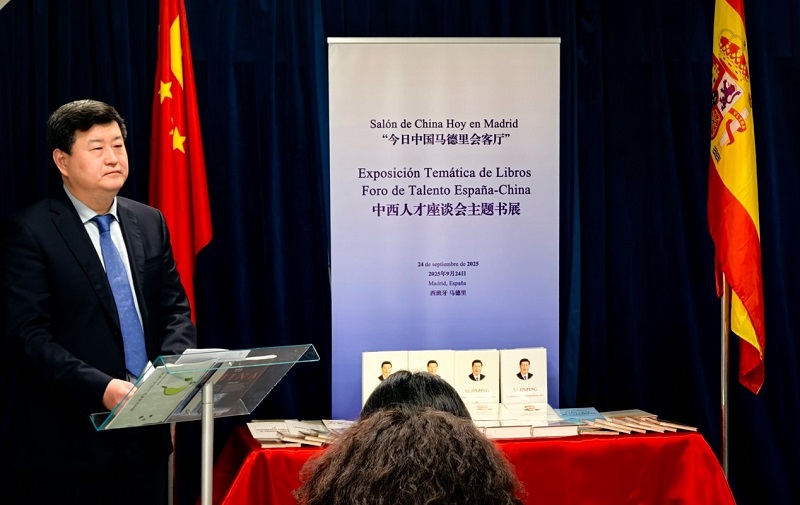
Zhang Ruobing.
In his concluding remarks, Zhang Ruobing pointed out that Beijing is accelerating the construction of an international science and technology innovation center and a high-level talent hub. By launching talent programs and projects, Beijing focuses its superior resources on attracting and nurturing high-level international talents, continuously promoting domestic and international talent exchanges and cooperation. He hoped that through the establishment of the Beijing–Madrid Talent Liaison Station, experts, scholars, entrepreneurs, and young talents from Spain would develop their careers in Beijing. At the same time, Beijing's outstanding talents are actively encouraged to engage internationally, showcasing their skills and contributing their wisdom on a broader international stage, achieving common development and mutual benefit through open cooperation.
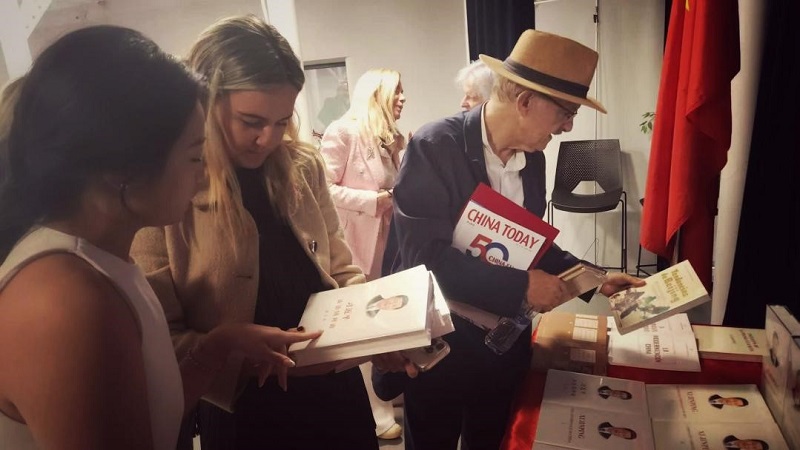
A book exhibition attracted widespread attention and enthusiastic responses from the attendees.
At this event, the Foreign Languages Press also organized a special book exhibition. Xi Jinping: The Governance of China along with a selection of books showcasing the essence of Chinese culture attracted widespread attention and enthusiastic responses from the attendees.
The forum was jointly organized by the CICG Center for Europe and Africa (China Today) and Spain’s Friends of China Association.